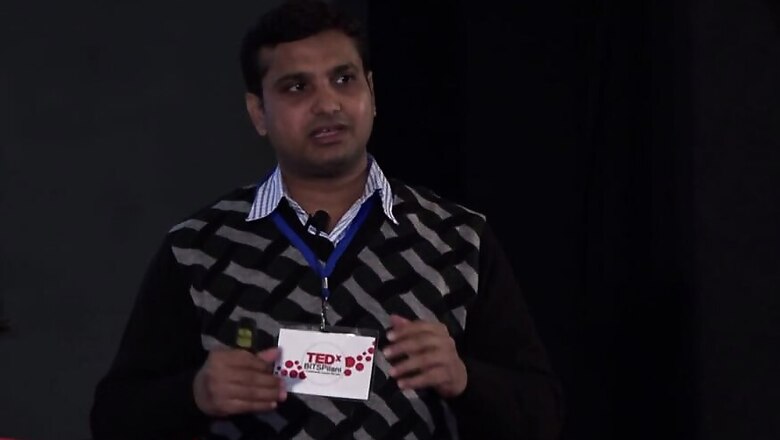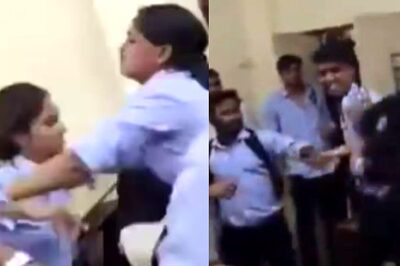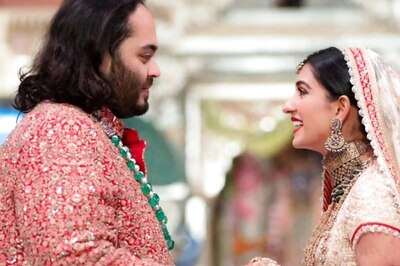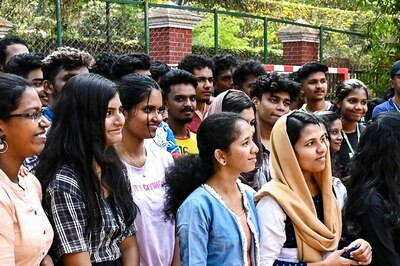
views
New Delhi: She was waiting for him as he stepped out of jail after 14 years, quite like the picture perfect ending of many a Hindi film. In a life upended by allegations of terror and prolonged imprisonment before acquittal, it's his love story that helped him cut through layers of pain, says Mohammed Aamir Khan.
The romance still holds the allure of fiction for Aamir, who was falsely charged as the main accused in 20 bomb blasts between December 1996 and December 1997 in Delhi, Rohtak, Sonepat and Ghaziabad, killing five people.
"Alia did not give up on me. I keep telling people that our love-story is the real-life version of Shah Rukh Khan and Preity Zinta's 'Veer-Zaara'," Aamir told PTI, recalling the Bollywood hit film about a Pakistani girl and an imprisoned Indian man who reunite after spending decades apart.
Aamir, who was recently granted Rs 5 lakh compensation by the National Human Rights Commission, a first of its kind, to help him pick up the pieces of his life, is now happily married with a four-year-old daughter.
Aamir and Alia's romance began over two decades ago when they went to the same tuition class in Delhi. But the young love was cut-short on a cold February night in 1998, when Aamir, then an 18-year-old student, was "kidnapped" by the police from a street in Old Delhi.
Fourteen years later in 2012, when he walked out of Rohtak jail, as a man of 32, his childhood love was still waiting for him. He also spent time in jails in Delhi and Ghaziabad.
After Aamir was acquitted in 17 cases, the NHRC on its own took up his case in December 2015, asking the Delhi government to offer him Rs 5 lakh as relief for his wrongful confinement as a terrorist.
"The sufferings faced by him have been long and arduous and the damage caused to him by the conduct of the State authorities is immense and exemplary," the commission had observed.
During his tenure in prison, his father died and his mother was paralysed, unable to speak following a brain haemorrhage. "After having lost my father, I was happy I could at least serve my mother during her final years. The only regret is I couldn't hear her call me 'beta', and could not eat food cooked by her," he said. His mother passed away in 2015.
NHRC said the compensation was aimed at helping Aamir cope with the personal losses as well as to offer him an opportunity to start his life afresh. As thankful as he is on receiving the compensation, a part of which he used for his mother's treatment, to pay off debts and to rebuild his life, no amount of money can restore the 14 prime years he had lost, he said.
"I began from minus zero, I had an open field. I was relieved, but there were a lot of hardships -- I was scared how the society would treat me, will I get a job, will anybody talk to me," Aamir, who now lives in Old Delhi's Azad Market, said.
While it was too late for him to realise his adolescent dream of becoming a pilot, he found refuge in the socio-cultural organisation Anhad after his release.
He is currently employed with Delhi-based Aman Biradari - Centre For Equity Studies, where he works on projects to promote a "secular, peaceful, just and humane world".
"My biggest concern was whether I would be able to leave behind my past and live a life of dignity, but thankfully first Anhad and then Aman Biradari gave me employment opportunities," he said.
He also wishes to use some amount of the relief money to create rehabilitation options for individuals like him who have been wrongfully incarcerated.
"I feel that innocent people who are put behind bars in the name of militancy, whose lives are wasted away in prisons, and are then finally acquitted by court are in dire need of being rehabilitated.
"There is a scheme for rehabilitation of surrendered militants, but there should be a policy for innocent people like me too," he said.
Looking back on his life, he said it was the strength and courage of the women in his life -- his mother and Alia that encouraged him to move on.
After his father passed away, his mother braved the overwhelming world of the prisons to meet her son and went to the court for his hearings.
And, Alia's life was no less arduous than his. "Hers was a lonely struggle. She did not even know if I would be released at all. But, she continued to have faith in my innocence and waited."
The two wanted to get married soon after Aamir's release but Alia's family had their reservations.
"Her family knew I was a nice person, but with me came the tag of a prisoner. They would say, 'what will we tell our relatives -- that we married off our daughter to a prisoner'? But true love triumphed.
Sometimes, true life can confound even romantic fiction.




















Comments
0 comment